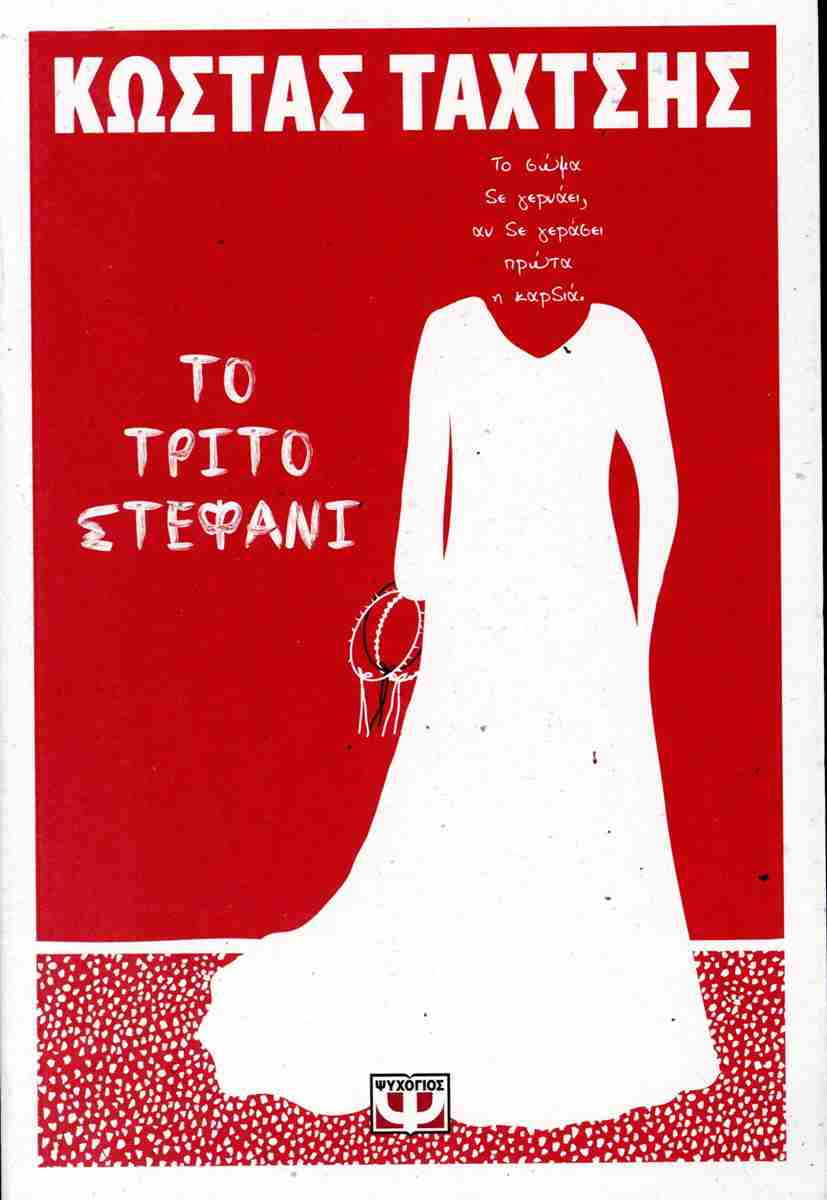ΤΟ ΤΡΙΤΟ ΣΤΕΦΑΝΙ / THE THIRD WEDDING WREATH
 “>
“>
Author:
KOSTAS TACHTSIS
Country:
Greece (GR)
Book Theme:
From book to video
Publisher:
PSYCHOGIOS
Publishing Year:
2021
Kostas Tachtsis (1927-1988) was a prominent Greek novelist and short story writer. Born in Athens, he grew up during World War II and the Greek Civil War, which shaped his worldview and literary voice. Tachtsis is best known for his novel Το Τρίτο Στεφάνι (The Third Crown), published in 1962, which explores themes of identity, family, and social upheaval in post-war Greece. His writing, marked by psychological depth and introspection, critiques the social and political climate of his time. Tachtsis also contributed essays and short stories, becoming a key figure in modern Greek literature. His works continue to resonate in Greek literary circles today.
National Award for Children’s and Young People’s
Abstract
Το Τρίτο Στεφάνι (The Third Wedding Wreath), published in 1962, is one of the most significant works of modern Greek literature, written by Kostas Tachtsis. Set in post-World War II Greece, the novel captures the emotional, psychological, and social turmoil of the time, while exploring themes of personal identity, love, loss, and the complex relationship between the individual and society. The narrative, characterized by its introspective depth, reflects on the struggles of the Greek people as they navigate the scars of war and political conflict.
The story is told through the perspective of an unnamed narrator, who reflects on his life and his family’s experiences, primarily focusing on the complicated relationship with his mother. The mother, a symbol of endurance and traditional values, is at the center of the narrative, embodying the challenges faced by women in a patriarchal society. Through her character, Tachtsis explores themes of sacrifice, loyalty, and the difficult choices made in the pursuit of dignity amid a fractured society.
The title, Το Τρίτο Στεφάνι, refers to the metaphorical “third wedding wreath,” symbolizing an elusive third opportunity for redemption or fulfillment, which remains unattainable for the characters. It represents the cyclical nature of human struggles—where suffering and hope continue to intertwine. As the characters navigate the turbulence of their personal lives against the backdrop of a nation in transition, they are often caught between the past’s unhealed wounds and the uncertain promises of the future.
The novel is marked by its fragmented narrative structure, blending memory, reflection, and introspection. The nonlinear storytelling reflects the disjointed nature of memory and emotional experience, inviting readers into the fragmented consciousness of the narrator. The prose is lyrical, emotionally charged, and rich with symbolic meaning, which allows for a multifaceted exploration of Greek identity during a time of profound change.
Ultimately, Το Τρίτο Στεφάνι is not just a personal story, but a broader commentary on Greek society and history. Tachtsis presents a world in which the individual is constantly confronted with the larger forces of history, national trauma, and social expectations. The novel remains a powerful exploration of the complexities of human existence, offering a poignant and often painful meditation on the pursuit of meaning, love, and identity in a world scarred by conflict.



